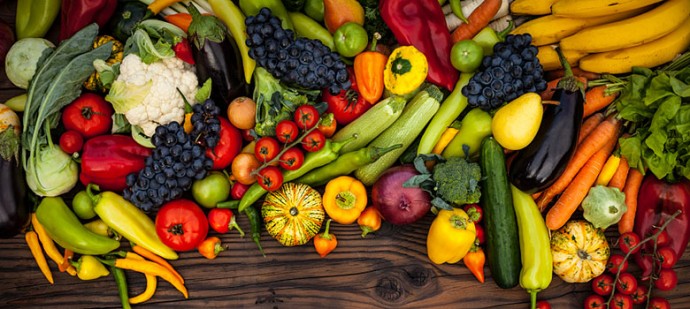When times get tough financially, we naturally start to look at areas where we can cut back. If you’re spending lots of money on your food budget, there are ways to cut back without having to sacrifice the quality of your food – or your health.

The best decision you can make when you are cutting back on spending is to plan your meals, incorporating a good mix of fresh and staple foods.
The secret to saving money is to write up a list of all the meals and snacks you plan to prepare for the week. When you head to the shops, stick to buying those items only. It will reduce the need to get last-minute takeaway meals or stop in at the shops during the week, when you are more likely to buy items that you didn’t really need.
Another golden rule is: don’t shop when you’re hungry. You’re less likely to buy more than you need.
Stock up on basics that will form a good base for most meals. Stocks, dried beans, lentils and healthy grains, such as brown rice, quinoa and polenta, frozen vegetables and eggs all fall into this category. These items should have a long shelf life and only need restocking once every few weeks.
Once you have the basics, look at buying what you need to fill out your meals, buy fresh produce each week. Try and eat a ‘rainbow’, meaning a good mix of different coloured fruit and vegetables, to give your full range of vitamins and nutrients. If you aim to buy the fruit and vegies that are in season, your grocery bill will be a lot less. Where possible, head to a local growers’ market to pick up fresh produce at low cost. It’ll also have the added benefit of being grown locally, which means it’ll be fresher and taste better.
It’s usually cheaper to buy meat in bulk from a butcher than a supermarket. You can also buy bones from the butcher to make stock and soup for the week. For meals that use beef mince, you can often use beans to stretch the meat further so you only need to buy half as much.
Take time to prepare time-saving meals that can be enjoyed later in the week. Cook up casseroles, stir-fries and pasta dishes, which can be reheated for lunch or dinner. Soups, stews and casseroles are a good option for freezing and heating up when time is short.
Using just some or all of these strategies should see your grocery bill plummet, without sacrificing on quality and taste!
Smart and healthy food-buying tips:
- Make a weekly shopping list and stick to it!
- Don’t do your grocery shopping when you’re hungry
- Stock up on the basics
- Include lots of fresh produce
- Plan large meals that can be frozen and eaten later.
Comments are closed.